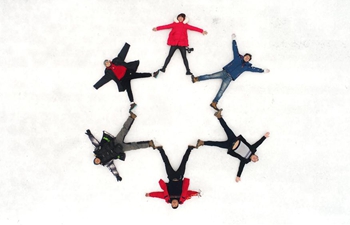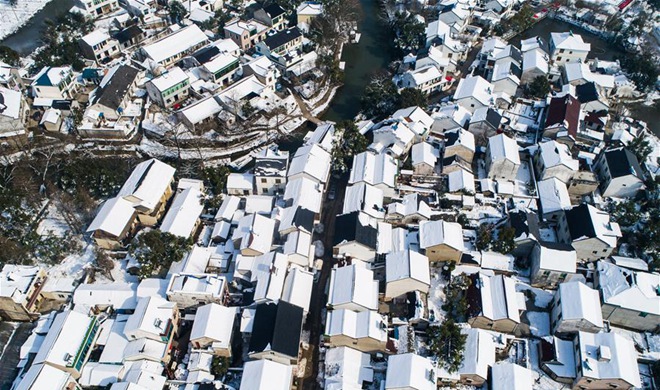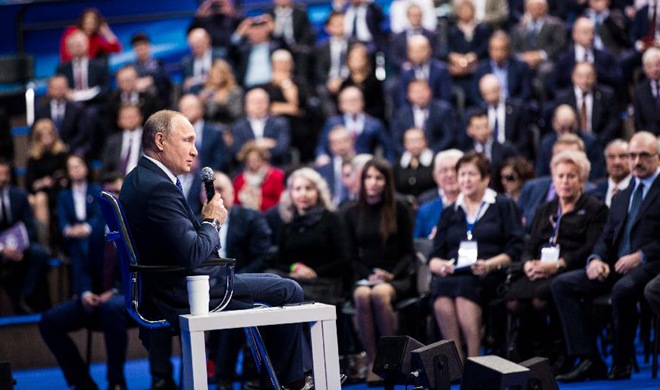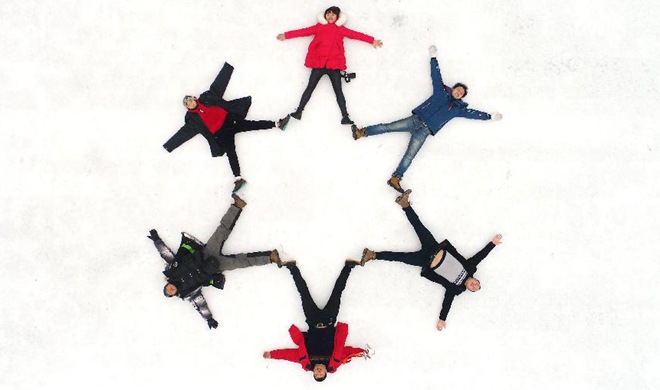TOKYO, Jan. 30 (Xinhua) -- As the China-Japan relationship has in recent days showed on a number of occasional signs of improving, it is hoped that Tokyo can convert words into actions to encourage the momentum.
Japanese Foreign Minister Taro Kono has recently wrapped up his first visit to China since he took the current portfolio. The trip has reflected Tokyo's strong willingness to improve ties with Beijing.
During Kono's visit, China and Japan agreed to foster a proper environment for a new round of trilateral meeting between the leaders of China, Japan and South Korea at an earlier date. He also expressed a positive attitude toward Japan's participation in the China-proposed Belt and Road Initiative.
Kono's attitudes echoed Japanese Prime Minister Shinzo Abe's remarks on various occasions since the latter half of last year about wishes to improve bilateral ties with China.
Earlier this month, Abe said at a New Year celebration party organized by Jiji Press in Tokyo that he wanted 2018 to be the year during which people in both Japan and China recognize "great improvement" in bilateral relations.
In a policy speech last week, Abe stressed Japan's willingness to promote the relationship with China and said that with Chinese President Xi Jinping's "One Belt, One Road" initiative in mind, Japan will cooperate with China on Asia's growing infrastructure needs.
China and Japan are close neighbors and important countries in the region. The two countries are highly complementary in economic and trade cooperation. Tokyo is also welcome to participate in the Belt and Road Initiative so as to benefit both peoples.
However, there remain a few long-standing issues which are awaiting proper settlement before the two countries can fully patch up their previously troubled ties.
Last week, Japan opened a museum that displays documents and photographs defending Japan's claims over two sets of islands, including the Diaoyu islands.
A few ultra-right wing activists in Japan are still trying to reject the nation's war crimes, with the Japanese government indulging and even promoting such a dangerous tendency.
Since normalizing ties in 1972, China and Japan have signed four important political documents as well as a four-point principled agreement. These are the political foundation for the bilateral ties and a keystone for cooperation.
Japan shall observe these documents and match its words with deeds on historical issues. It shall face and fully reflect upon history, and honor the promises made by its previous governments including the 1995 statement by then Prime Minister Tomiichi Murayama.
Japan also needs to play a constructive role in regional security matters. It shall fully abide by the one-China policy, and stop meddling in the South China Sea.
It is hoped that Japan could take the great opportunity of the 40th anniversary of the signing of the China-Japan Treaty of Peace and Friendship, and make joint efforts with China to bring bilateral ties back to normal track.

















